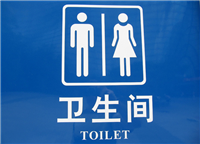Day-to-day realities in China
At first, simple tasks can consume an entire day: figuring out how to navigate stores, utilities, and other chores becomes more difficult than expected. Linking up with a community of expats helps. Check English-language magazines and websites such as The Beijinger or Shanghaiist (most big cities will have something) for events or enroll in a language school.
“The most difficult thing for me was the pollution,” says Wendy Chow, an Australian expat who’s lived in Beijing for almost five years with her husband and their two young children. After pollution, the next most frequent source of complaints is the traffic. Expect traffic jams in big cities and very, very crowded buses and trains.
Chinese cities are busy and bustling. Despite initiatives to curb spitting and nose blowing the sidewalk, you’re likely to encounter that sort of behaviour on a regular basis. Even in nicer restaurants, bathrooms tend to feature squat toilets. The level of cleanliness can be difficult to adjust to, but if you can learn to appreciate China’s freewheeling ways, those concerns fade into the background.
Being a foreigner in China

People who are ethnically Chinese but grew up elsewhere sometimes have it the hardest, since they “look Chinese” and are expected to be familiar with the language and culture. And while white skin can open doors (see the “rent a white guy” phenomenon), other races sometimes find that unpleasant stereotypes precede them.
Who shouldn’t come to China
Surrounded by a different language and culture, you will experience times when you don’t know what’s going on. If you’re the type of person who gets angry or uncomfortable in ambiguous situations, moving to China won’t go well. Don’t assume you’re a victim of racism if something doesn’t work as you planned: the cabbie might be off-duty or what you think is a barber shop might actually be a brothel.
The language barrier in China
Learning the basics of Mandarin is very helpful. Most taxi drivers and shop clerks don’t speak a word of English. You can get by with just English in cities like Beijing and Shanghai, but your life will be limited: you’ll need to have addresses written out in characters before you set off and likely end up eating in expensive expat-oriented restaurants—or at McDonald’s.
Street signs are written in Chinese and pinyin (a Romanized version of Chinese), but shop signs are usually only in Chinese. The distinct system for naming roads and bridges takes some getting used to, and it can be hard to find an accurate map, says Ryan Phillips, an American who visited Shanghai on a librarian exchange, because construction happens at such a fast pace that resources quickly became outdated.
Even if you can only say a few words, the Chinese people you meet will appreciate your attempts to overcome the language barrier.
Socialising in China
Etiquette rules aren’t super-rigid in China, and there’s a lot of leeway given to foreigners.
Splitting the bill isn’t common—you might see two people physically jostling to determine who picks up the tab. Chinese friends may insist on paying for you, or in other cases, you may find that as the foreigner—therefore perceived as wealthy—you’re expected to pay.
At Chinese banquets, fiery white liquor called baijiu is often served as small shots. Although many expats find the substance undrinkable, when someone locks eyes with you and shots ganbei (“dry the glass”), you’re expected to drink!
People pass out business cards all the time, even in social situations, so be sure to stock up on namecards before you go, or get some printed cheaply when you arrive. When someone offers you his or her card, accept it with both hands and then offer yours.
Issues for women in China

In most of China, women should feel comfortable wearing the same clothes as in the West. However, in Xinjiang, with its large Muslim population, many local women cover their heads and arms, and it’s best to dress a little more conservatively.